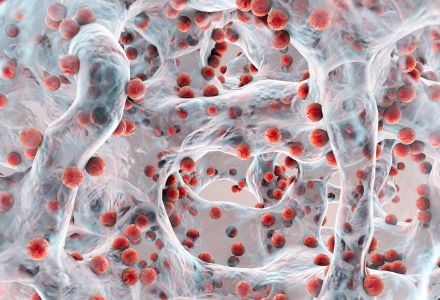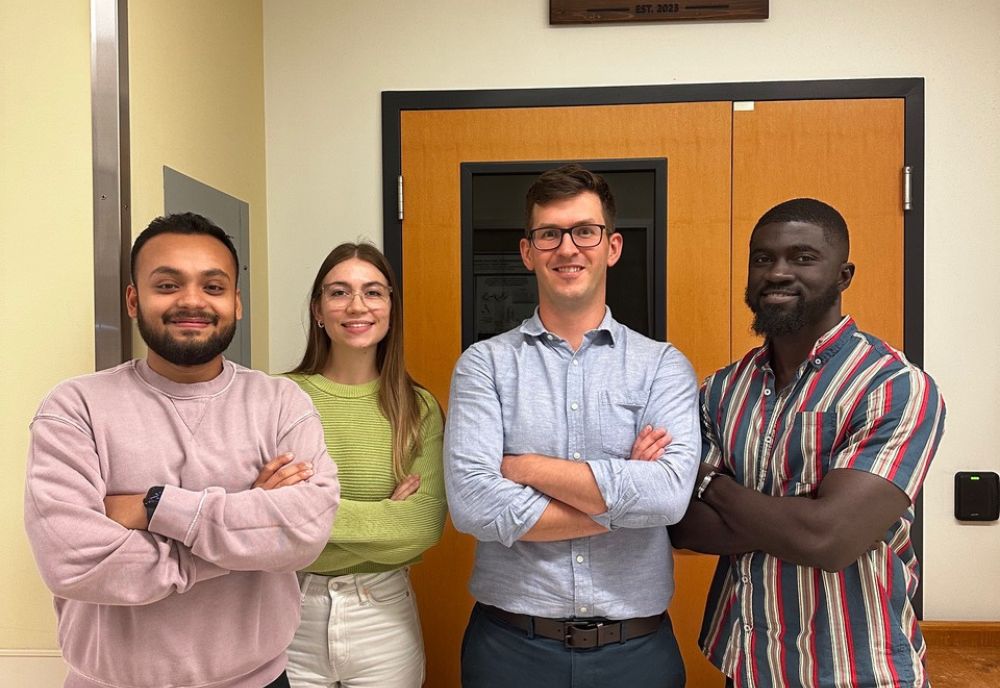Dr. Maksym Bobrovskyy, an assistant professor in the Department of Molecular Biosciences, was recently awarded a grant from the National Institutes of Health (NIH) to continue his research related to Staphylococcus aureus (S. aureus) Type VII Secretion System (T7SS) assembly and regulation.

Staphylococcus aureus. (Photo from Adobe Stock)
Staphylococcus aureus is a bacterium that co-evolved with humans and is found in the nasal cavity and on the skin of a third of the human population worldwide. S. aureus is a leading cause of serious life-threatening infections, more commonly known as staph infections, such as skin and soft tissue infections, bacteremia, endocarditis, osteomyelitis, and pneumonia. Infections caused by the antibiotic-resistant strains such as methicillin-resistant S. aureus (MRSA) are hard to treat and result in poor clinical outcomes.
According to Bobrovskyy, MRSA secretes a large number of proteins, i.e. toxins and effectors, that help the bacterium invade the host tissue, circumvent host immune responses, and establish infection.
“Secretion of a subset of these proteins requires a specialized molecular machine referred to as a T7SS, which functions during infection to support S. aureus pathogenesis,” he said. “In my lab, we work to understand the molecular details of T7SS assembly, mechanism of secretion, and regulation to potentially identify new ways to tackle MRSA infections.”
“With this additional funding from the NIH grant, we will use a combination of genetic and biochemical tools to determine the composition and structure of the T7SS to understand how this molecular machine assembles across the bacterial cell envelope,” Bobrovskyy explained. “Further, we will identify the genetic and environmental requirements for protein secretion via T7SS. Together, uncovering the molecular details of T7SS regulation and assembly might reveal additional targets for future therapeutic development.”
Bobrovskyy shared that as an early career investigator, receiving the NIH funding marks an important step toward establishing a productive independent research program.
“This grant will provide resources and training opportunities for students and postdoctoral fellows to pursue interesting questions relating to staphylococcal physiology and disease. This ultimately contributes to our mission of advancing science and education at USF.”
